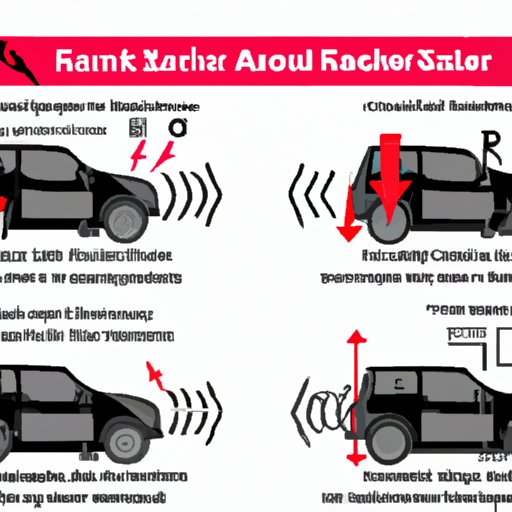Introduction
An abrupt shake or vibration when accelerating is not only annoying but can also be a cause for concern for many drivers. It can indicate a range of potential problems with the car’s performance, which could be minor or life-threatening. In this article, we explore the most common reasons why cars shake when accelerating and the best course of action for car owners to take when they experience this issue.
Common Causes of Car Shaking When Accelerating
There are several common reasons why a car may shake when accelerating. These include:
- Tire Issues: Worn-out or improperly inflated tires can lead to a bumpy ride by causing uneven traction and stability on the road.
- Engine Problems: Poor engine performance or misfiring due to fuel delivery or spark plug issues can cause shaking when accelerating.
- Transmission Malfunction: A failure to shift gears properly or a low level of transmission fluid can result in the car shaking when you accelerate.
- Brake System Issues: Worn-out or damaged brakes, brake pads, and rotors can cause vibrations and shaking when you step on the gas pedal.
- Suspension Problems: Faulty shocks and struts may cause an unstable ride, resulting in car shaking when accelerating.
Risks Associated with Driving a Shaking Car
If your car starts to shake when you hit the accelerator, it is best to pull over as soon as possible. Driving a shaky car is not only uncomfortable but can be incredibly dangerous. The following are potential risks associated with driving a car that is shaking:
- Increased Accident Risk: A shaky car can cause stability issues, which can lead to a crash or other accidents, endangering the lives of passengers and other road users.
- Damage to Other Car Parts: Persistently driving a shaking car can lead to damage to other essential parts, leading to further problems and costly repairs.
- Expense of Repairs: Delaying repairs can cause more significant damage to the car and ultimately result in expensive repairs, which could have been avoided by conducting timely maintenance.
Getting the Car Inspected
If your car starts shaking, it’s best to take it to a certified mechanic for an inspection. They will diagnose the root cause of the problem and provide a comprehensive report of the issue. Professional diagnosis is crucial as it ensures that you are not spending money on unnecessary repairs while preventing problems from becoming larger.
Potential Repair Options
Depending on the cause of the shaking, the mechanic may suggest one of several repair options. These may include the following:
- Tire replacement: If the shaking is due to tire issues, the mechanic may recommend tire replacement or balancing.
- Engine repair: Issues with the engine, such as misfiring, can be resolved by replacing spark plugs or fuel injection systems.
- Transmission repair: Transmission issues may require a repair of the damaged parts or fluid replacement.
- Brake repair: Replacement of worn-out brake parts or brake pads can rectify shaking caused by brake issues.
- Suspension repair: The mechanic may suggest a replacement or repair of worn-out coil springs or shock absorbers to stop car shaking.
Safety Tips for Handling a Shaking Car
Driving a car that is shaking when accelerating can be dangerous, and the following safety tips can help you handle this situation:
- Slow Down: Reducing your speed while driving a shaking car can help you maintain stability and prevent accidents.
- Pull Over: If shaking while driving, pull over immediately and check the tires and engine for potential issues.
- Use Hazards: Turn on your car’s hazard lights to inform other drivers of a potential issue on the road.
Conclusion
A car that shakes when accelerating is more than a minor annoyance; it can indicate severe issues with critical parts of a vehicle. Getting your vehicle inspected if you experience shaking is essential for your safety and preventing costly repairs down the line. As always, it is best to heed the advice of a licensed mechanic and rectify the issue before more severe damage occurs, making for a more comfortable and safe ride.
